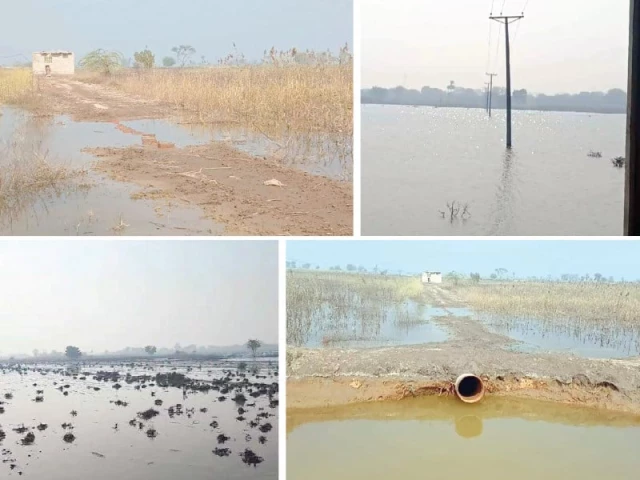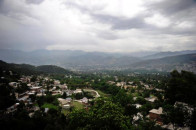Salinity threatens RY Khan fertile land
Protests erupt as infrastructure failures worsen conditions for agriculture

The agricultural landscape of Rahim Yar Khan is facing a crisis as the issues of salinity and waterlogging resurface, exacerbated by malfunctioning turbines, stolen transformers, and clogged drainage channels.
The lack of action regarding the WAPDA SCARP-6 project has led to the inundation of approximately 550,000 acres of fertile agricultural land across the district, which encompasses all four tehsils.
Rising underground water levels have devastated cotton and wheat crops across thousands of acres in 350 Chaks, compelling many farmers to abandon their lands and migrate to seek better opportunities.
In light of the deteriorating situation, a group of frustrated farmers has staged protests, urging Punjab Chief Minister Maryam Nawaz to take immediate notice of the alarming crisis affecting the agricultural heartland of the district.
The WAPDA SCARP-6 project was initiated to combat salinity and waterlogging but is currently inactive due to a severe lack of funds.
Approximately 514 tube wells and associated machinery intended to extract silt-laden water from the ground have fallen into disrepair, while numerous transformers have been stolen.
Moreover, silt drains remain filled with debris due to inadequate maintenance and de-silting efforts, which has resulted in many fields being left dry and crops ruined.
Haji Muhammad Ibrahim, a former chairman of the Pakistan Cotton Ginners Association (PCGA) and a local farmer involved in the protests, emphasized that Rahim Yar Khan is renowned for its fertile agricultural lands.
Located at the confluence of Sindh, Balochistan, and Punjab, the district holds strategic importance due to its proximity to major cities like Lahore, Karachi, and Faisalabad. Historically, the district has produced valuable crops such as cotton, wheat, sugarcane, mangoes, and oranges, making agriculture the primary source of livelihood for many residents.
The crisis of salinity and waterlogging is not a new phenomenon; the fertile lands have been battling degradation since the early 1970s, when groundwater contamination began.
The catastrophic floods of 1973 destroyed millions of acres of agricultural land in the district, leading to prolonged groundwater issues.
Stagnant floodwaters inundated the region for months, prompting the federal government, with assistance from WAPDA, to initiate a survey in 1978.
This survey led to the launch of the SCARP-6 project, aimed at remediating groundwater levels in flood-affected areas with World Bank support.
However, over time, the multi-billion-rupee SCARP-6 project has faced failure due to government negligence, a lack of funding, excessive loadshedding, and other issues. While the project had previously shown some effectiveness in restoring agricultural lands, the catastrophic floods of 2010 and subsequent monsoon rains have worsened the situation.
Many rural areas are now facing critical underground water levels, with power outages and deteriorating drainage systems rendering the SCARP-6 project ineffective. Fields are often submerged in 2 to 3 feet of stagnant water, leading to significant crop failures, particularly in sugarcane production.
Rana Hassan, a prominent farmer and social activist, described the situation as catastrophic. Despite continuous protests, the government has failed to address the pressing issues, including neglected drainage channels built 30 to 40 years ago, most of which have not been desilted in decades.
The majority of tube wells and turbines are out of order, and stolen or broken transformers have compounded the problem, with maintenance workers rarely present.
Farmers have also expressed their concerns about severe power outages lasting up to 18 hours daily, which have further exacerbated their plight.



















COMMENTS
Comments are moderated and generally will be posted if they are on-topic and not abusive.
For more information, please see our Comments FAQ